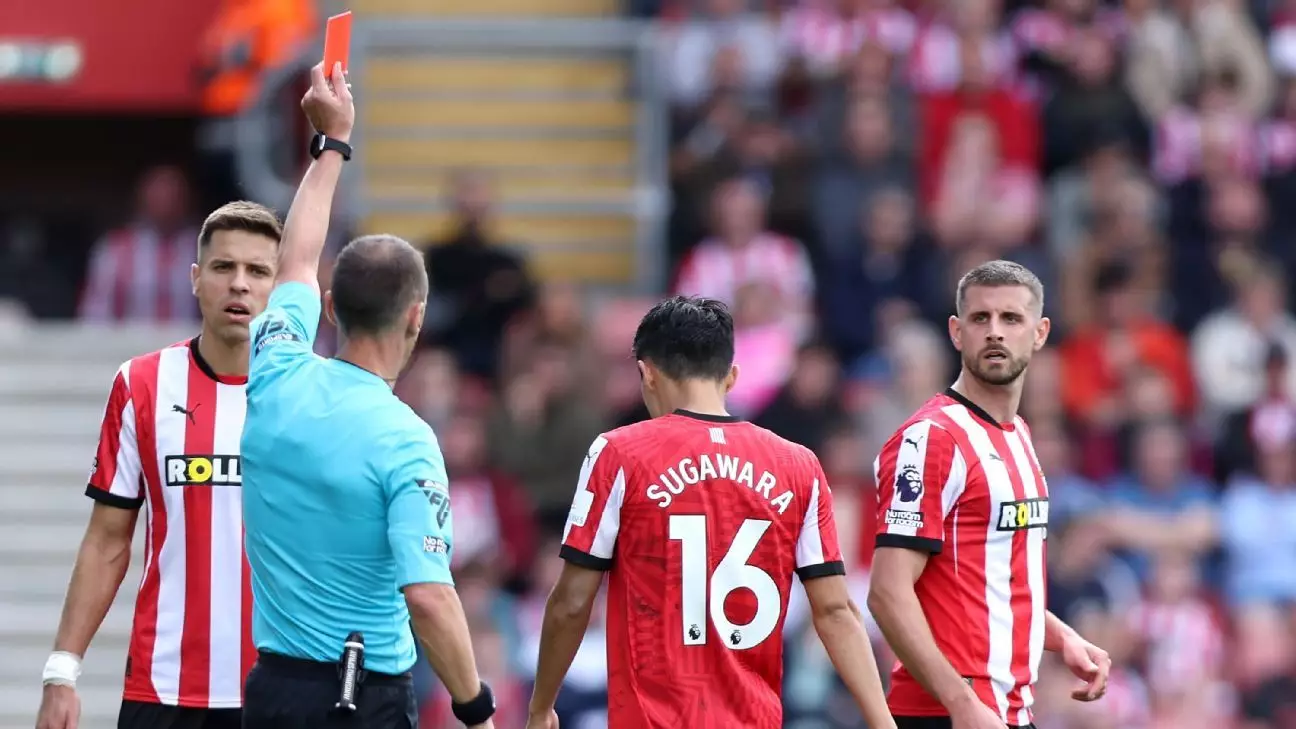In recent events that have sparked discussions within the football community, Southampton’s captain, Jack Stephens, faced severe repercussions for his behavior during a Premier League match. His actions not only cost him games but also reflected a larger issue regarding player conduct and accountability within the sport. This article will explore the incident, its ramifications, and the broader implications for sportsmanship in football.
On September 14, during a game where Southampton faced Manchester United, a pivotal moment occurred that would lead to Stephens’ downfall. Following a high challenge that resulted in his dismissal, he didn’t leave the pitch quietly. Instead, he retorted with abusive language toward both the match referee, Stuart Attwell, and the fourth official, Gavin Ward. This moment, characterized by a lack of restraint, was significant enough to evoke a formal response from the English Football Association (FA), underscoring the seriousness of such behavior in professional sports.
Following the incident, the FA acted decisively, imposing a fine of £50,000 (approximately $66,535) on Stephens and suspending him for two matches. An independent Regulatory Commission reviewed the case, during which Stephens personally expressed his remorse. In a statement reflecting on his behavior, he acknowledged his wrongdoing, stating, “What I said was completely unacceptable and below the standard of conduct expected of me.” His admission of guilt and embarrassment indicates that he understands the gravity of his actions, especially given his role as a team captain.
Leadership in any team sport carries a set of expectations and responsibilities, and Stephens’ situation is a stark reminder of this truth. As captain, he is not just a player but also a role model, influencing the conduct of teammates and those who look up to him. His recognition of the need to set a positive example is commendable, but it raises questions about the mechanisms in place to ensure accountability among players. With his high-profile status, the expectation is higher; thus, the consequences he faced serve to reinforce the importance of maintaining composure and respect for officials.
The repercussions of Stephens’ actions extend beyond his personal consequences. Not only will he miss critical upcoming fixtures against Arsenal and Leicester City, but his absence exacerbates an already challenging season for Southampton, who find themselves at the bottom of the league standings with only one point from six matches. This predicament highlights how individual errors can have ripple effects, impacting team dynamics and performance in a high-stakes league.
Jack Stephens’ case presents an opportunity for reflection on sportsmanship in football. As the line between on-pitch aggression and unacceptable behavior continues to blur in such a competitive environment, his actions catalyze necessary discussions about conduct, accountability, and the role of leadership in sports. The sanctions he faced may serve not only as a punishment but also as a stern warning to all players about the importance of maintaining respect in the heat of competition. Ultimately, the true challenge lies in harnessing passion for the game while upholding its core values.

Leave a Reply